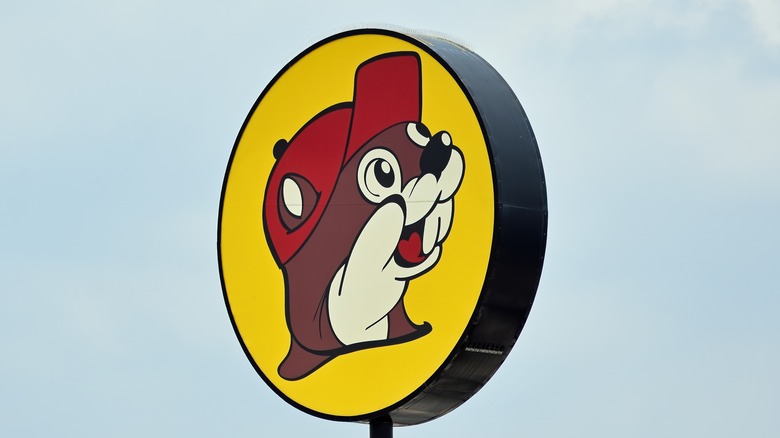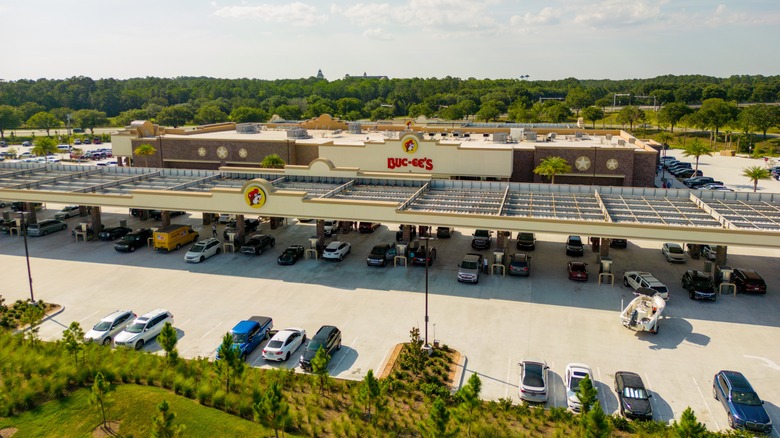The Reason There Aren't Many Buc-Ee's Outside Of Texas
Everything is bigger in Texas — even gas stations. If you've ever traveled through the Lone Star State, you may have stopped in at one of its most beloved road trip institutions — Buc-ee's. The beaver-fronted convenience store and gas station is as big as a grocery retailer offering everything from cookout grills to clothing and a full-service deli that's revered for its beef jerky and brisket sandwiches (can't forget the 100+ gas pumps, either).
Across the U.S., there are 45 Buc-ee's locations, yet a whopping 37 of them are located in Texas with a select few in Alabama, Florida, Georgia, Kentucky, South Carolina, and Tennessee. But seeing that a typical Buc-ee's can service up to 11,000 cars per day during its busiest season, it's surprising that the mammoth gas station isn't decorating highways from coast to coast. After all, doesn't everyone love Beaver Nuggets?
So what's the catch? Why isn't this popular travel destination available across the country? Unfortunately, it comes down to local regions protesting its popularity and the implications its marketability has on the small towns where Buc-ee's are typically located.
Buc-ee's can disrupt a town's local economy and identity
It's not that Buc-ee's isn't trying to expand its footprint across the United States — honestly, why wouldn't they? There's nothing more American than a 50,000 square food station that sells cowboy boots and critically-acclaimed meats. Just a few years ago, Buc-ee's recently tried to expand its operations into Efland, North Carolina but failed spectacularly due to the local community's organized pushback on the gas station's efforts.
Despite Buc-ee's promising the community 200 new jobs starting at $15 an hour and an estimated $1 million in local revenue, Efland and the surrounding Orange County simply weren't interested. Voice 4 Efland, a local working group in the area was not only concerned about the unnecessary traffic it would bring to their peaceful little town, but also the optics. Del Ward, a member of the organization, told Texas Monthly that the branding is "quite frankly tacky" and doesn't align with the quaint appeal associated with Orange County.
Another reason local communities aren't keen on bringing Buc-ee's to their area can be attributed to retailers' low gas prices. When a franchise as popular as Buc-ee's finds its way into a community boasting, surrounding gas stations are forced to compete by lowering their own prices, and consequently, their annual income. Although it's a win for locals trying to fill up without breaking the bank, local business owners suffer the consequences of Buc-ee's popularity and low prices.
Sorry, Buc-ee's — turns out it really is lonely at the top.

